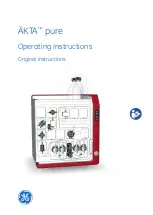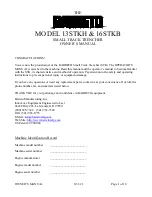
Table of contents
Technical information
2
Important information
3
Maximum load
3
MiniLift200 Parts
4
Assembling MiniLift200
5
Measurement MiniLift200
6-7
Final inspection
8
Operation
9
Funktions on the controlbox/batteri
10
Emergency stop, emergency lowering
11
Charging
11
Trial operation of MiniLift200
12-14
Trouble-shooting
15
Other maintenance details
15
Technical information
Lifting speed: 1.5 cm/s without load
Controlbox: 24V DC, 9A
Batteries: 24V DC 2,9 Ah, IP65
Charger: Built-in charger, 100-240 VAC, 50-60 Hz, max 400 mA
Motor (mast): DC24 V, 10,5 AH. IP54. Operationtime: 10% at maximum continous running
of 2 minutes. Push: 7500 N.
Motor (base): 24 V DC, 12,3 AH, IP54. Operationtime: 10% at maximum continous opera-
tion of 2 minutes. Push: 2000N.
Material: Steel
Emergency lowering: Mechanical and electrical
Castors: Back 4”,100mm, front 3”, 80mm
IP class: IP54
A-weighted sound power level: 55,8 DBA
Approval: EN 60601-1 Confirm to UL 60601-1 and CAN/CSA-C22.2 No.601.1-M90,
ISO 10535:2006.
The device is intended for indoor use.
Type B, according to the degree of protection against electric shock.
2
www.romedic.com


































